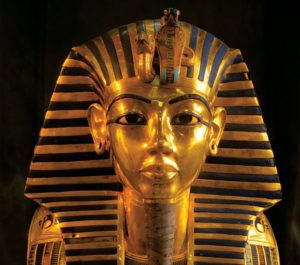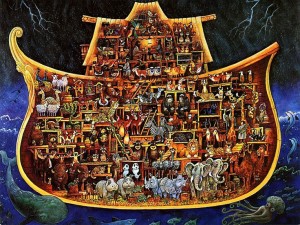by John Holbrook Jr.
A Biblical View, Blog #013 posted October 10, 2016, edited March 9, 2021.
Although the Bible indicates that a man is responsible to God for providing for, protecting, and leading his family, he cannot do so without the cooperation and help of his wife. Here the dynamics in a military unit can help elucidate the problem.
In the US Army and the US Marines, there often arises the situation in which a second lieutenant fresh out of officer training school is assigned to be the commander of an infantry platoon of roughly 45 men. One of them is the platoon sergeant – usually a staff sergeant or possibly a gunnery sergeant – his second in command, who possesses years of experience. For at least a while, the subordinate is the more capable leader, but his job is not to lead the platoon, but to help the lieutenant learn his job and lead the platoon capably. If the sergeant does try to lead the platoon, three things will happen: the platoon will function poorly, he will lose the respect of his subordinates (he is providing them with a lesson in insubordination), and the lieutenant will never learn to lead the platoon. If the platoon sergeant does his job properly, however, he will receive the respect of both his men and his boss – any lieutenant who does not recognize and value the critical contribution of a sergeant who does his job properly will not last very long.
The role which God has assigned to the wife in a marriage is similar to the role which the Army or Marines assigns to the platoon sergeant. Her job is not to lead the family, but to help her husband learn his job and lead the family capably. If she does try to lead the family, three things will happen: the family will function poorly, her husband will lose the respect of his children (she is providing them with a lesson in insubordination), and the husband will never learn to lead the family. If the wife does her job properly, however, she will receive the love and respect of both her children and her husband – any husband who does not recognize and value the critical role of a wife who does her job properly will not stay married very long.
Unlike the military situation, in which officers receive more status, pay, perks, and recognition, the wife in a godly household will be treated as her husband’s equal and will be highly honored by him, their children, and others who recognize her contributions.
See the appendix below for a very interesting and insightful discussion of this issue by Sheldon Vanauken.
© 2016 John Holbrook Jr.
________________________________________
APPENDIX
EXCERPTS FROM UNDER THE MERCY[1]
by Sheldon Vanauken
Pages 178-179.
I do not, I must hasten to say, reject all of feminism. Women should certainly receive equal pay for equal work – and equal commitment. Moreover, I distinguish between women who merely want fair play and the feminist organizations and leaders who are far more extreme. The essential feminist argument that I reject is that equality means identicalness, like two ten-penny nails. The essential position I maintain is that equality means equal in value, equal in importance. Not like two identical nails but like a nut and a bolt that are of absolutely equal importance in holding something together but are different and complementary.
Those who deny the deep and innate difference of men and women (apart from the trifling differences important only in the bedroom) are the “Neuterists’ of the title – the Unisexists. They go against the deep wisdom of all races and all history. They also go against the Bible.
One of their arguments is that the people of past ages, including Jesus and St. Paul, were conditioned by the culture of their times. Leaving apart the fact that Jesus, Son of God, did perfectly the will of the Father in eternity (not culture-conditioned), the feminists neglect one point: that they themselves are totally surrendered to late twentieth-century ‘culture’, as culture-conditioned as the young Nazis in the ’30s or the Victorians of the 1880s. Every age has its characteristic illusions (Nordic supremacy or witchcraft). The feminist vision of woman – of equality as sameness – may be the great illusion of our age….
I have sometimes dared to wonder whether the neuterists might possibly be suffering from arrested development: an inability to accept fully their own womanhood.
The feminism of the 1920s was too early for Davy and me to be aware of. It had perished in the rigours of the Great Depression, just as it will perish again if there’s another rock-bottom depression or a devastating defeat in war, and we again go back to basics. At all events, when Davy and I were married, feminism was simply not on. Women, despite some doctors and editors, were mostly housewives, but they seemed happy as well as a good deal freer than men. Nevertheless, as I have told in A Severe Mercy, I was determined to renounce husbandly authority: we should discuss everything, and we should not act until we both agreed; and we should share housework and cooking. Davy did not demand this in the name of women’s rights: it was my initiative, though she was pleased as well as astonished. In that day it was astonishing. But it was done in the name of love. Not ‘rights’.
But there is a certain irony here, not apparent to us then. The male headship that St. Paul lays down means, not bossing, but leading or initiating. That is why God the Father, while He created and certainly comprehends both genders, is masculine: He initiates. And it is why Jesus, one with the Father, had to be born a man: He is head of the Church: it is the Church that is she: the Bride of Christ. And the irony in what Davy and I did was that I initiated our feminist arrangements, though I didn’t appreciate that irony until after her death. And I concluded then that male leadership was inbuilt in the Creation and could only be denied at heavy cost to love. But we didn’t suspect it during her life – unless she did.
For in the last year of our years together, reading deeply in St. Paul, she began to desire to be, not a ‘comrade-lover’ but a wife.
Pages 181-185
Since God Doesn’t Make Mistakes:
WOMEN’S ‘ORDINATION’ DENIES THE INCARNATION
The case for the ‘ordination’ of women to the sacramental priesthood is very appealing. It appeals to our sense of fair play, of simple justice. Women have, in fact, suffered grave injustice: why is their being denied the priesthood not an aspect of that injustice? But the case rests not only upon justice but upon the equally appealing proposition that Our Lord the Holy Spirit is leading the Church of Christ into a new understanding of the roles of women – and who are we to argue with the Holy Spirit? It is perfectly clear that women have the brains to be priestesses or even learned theologians; and no less clear that they have the qualities of sympathy and understanding that would enhance their ministry. And, after all, neither Christ nor even the alleged misogynist, St. Paul, ever laid it down that women cannot be priestesses, and St. Paul, indeed, can be held to have implied that they could be in his great statement that there is neither male nor female in Christ Jesus. The fact that Jesus, so sympathetic to women, still did not, in that patriarchal Jewish world, make some women, say Mary Magdalen, an apostle was perfectly appropriate to His time and place. He also did not make a Gentile an apostle. Therefore, just as the Church made Titus and other Gentiles bishops (or apostles) when the time was right, so now we should not be restrained by Jesus’s not appointing a woman nor by the resulting tradition from following the leading of Our Lord the Spirit into new truth.
It is all most appealing and compelling. It was all so appealing and compelling to me in the late sixties – I being a strong advocate of women’s liberation from the first – that, brooding upon injustice to my sisters and engaging in what I was pleased to call thinking upon theology, I was moved to write a spirited article urging the instant ‘ordination’ of women. One uncomfortable question that I did not ask was: How do we know that men and women are, apart from the plumbing, the same, spiritually the same? We do not, in fact, know that. Another question, even more uncomfortable, is assumed by the proponents of women’s ‘ordination’ to be raised only by die-hard, male supremacist opponents; but it is a real question all the same: How do we know that it is Our Lord the Spirit that is compelling us and not the Spirit of the Age? Those who find that question meaningless have perhaps answered it, at least for themselves.
Being myself unable to answer either question with assurance, I finally raised the question: What, if anything, is the bearing of the Incarnation upon the priesting of women?
The Incarnation is surely the central doctrine of our faith. If we are of those who speak contemptuously of “creedal literalism” (which appears to be shorthand for the assertion that we can say the creeds without believing them and still, somehow, not be liars) we perhaps brush aside “He came down from heaven and was made man” and “very God of very God.” But there are many in the Church – who may be called Christians – who do not brush these statements aside, who do believe the Creeds, and who hold the Incarnation to be the essence of the Christian faith. I for one. And I speak to others of like belief.
Still, what bearing does the believed-in Incarnation have upon the priesting of women?
I am a writer, not a trained theologian. Let me, therefore, begin with an analogy that may make a certain amount of sense to those who write or read stories. Suppose, then, I write a novel and put myself in it (perhaps under a different name), as writers often do. I am the author, not the Author of All Things but the inventor (creator) of this particular story. For my novel I invent (create) an imagined city in an imagined time and place full of imagined characters. But I, too – not imagined or created – am in the (invented) city, talking to and interacting with the invented characters. I-the-character, wearing my familiar tweeds, smoking my pipe, speak to the invented characters, but I-the-character speak the words that I-the-writer give me to speak – the words that I-the-writer would speak in those circumstances. I-the-character do the will of “my father in the study,” that is, the writer. I am, in short, incarnate in my book. All man and all God, that is the doctrine. And in the analogy, all character and all author. The analogy is not perfect. For one thing the characters don’t have free will. And yet, as many novelists have said, sometimes the characters do “run away” with the story. The logic of the situation in my novel might compel me-the-writer to allow me-the-character to be shot or, if it were set in Roman times, crucified.
One more point about the analogy: I-the-writer know how the novel will end. The characters move in their invented time, and if they were truly sentient, the future to them would be veiled. I-the-writer am not in the book’s invented time but in what to the characters would be eternity, even as God the Father is in eternity, though Jesus, God the Son become man, was in created time.
Argument by analogy is always dangerous, and any argument based on an analogy with the Trinitarian God would be incredibly dangerous. But I have not based an argument upon my analogy and do not propose to. I suggested the analogy only as a possible illumination in our thinking about the relation of the Incarnation to the priesting of women.
Still, the analogy does roughly express what the Church has maintained for some two thousand years of (created) time to be the relationship between God the Father and God the Son when the latter was made man in this (created) world. Jesus, the Church says, was all God and all man – the body of a man, the mind of a man, the limitations perhaps of a man, yet God in the world. He and the Father were one, He said. And He did the will of the Father, He said. Therefore He knew what the will of the Father was. But, then, to return to the analogy for the moment, I-the- character do the will of the writer as it is given to me to do. I-the-character can do no other. Jesus, one with the Father, with perfect obedience, chose to do no other than the will of His Father.
The proponents of the priesting of women point out that Christ, even if He were the incarnation of God, was necessarily of finite mind. He had, they say, the limitations and even the prejudices of the particular (created) time and place of His manhood. Therefore, in choosing apostles, He, a Jew, would of course have chosen only men, even as those apostles, in their turn choosing first a new Twelfth and later others, would choose only men. Thus the tradition, unquestioned at the time, became fixed and has endured down the centuries. But we are not first-century Jews, and we should cast aside the tradition that was based upon no more than first-century Jewish prejudice. But this argument neglects one point.
Jesus, indeed, was a Jewish man of His time. But Jesus did the will of the Father which He knew, even as (in my analogy) I-the-character do the will of the writer which I know. Jesus did perfectly the will of the Father.
Jesus, with the limitations of a first-century Jewish man, did not ever, we may suppose, think of appointing a woman to the apostolate. He did not, we may presume, have the least notion that His not appointing a woman would prevent any woman from being priestess or apostle for nearly two millennia.
But God the Father knew. And Jesus did perfectly the will of the Father.
Just this is central. Before all worlds, God the Father in eternity knew that on this (created) world sixty generations of women would be denied any aspiration to the priesthood because Jesus did not appoint a woman as apostle. Even if we now fling open the barred gates to the priesthood and the episcopate, the wronged generations of women stream back through the centuries.
It may be objected that Jesus did not appoint any Gentiles as apostles either. Perhaps it never occurred to Jesus that either women or Gentiles would be seeking the priesthood. But there were Gentile bishops and priests – Titus, for instance, or Timothy – as soon as the need arose with the expansion of the Church into the Gentile world. Why were there not female priests and bishops? Because of male prejudice in the Gentile world also? That will hardly do. Women were freer in the Greco-Roman world than they have ever been since until this century. They owned property; they were admitted to philosophical schools in Athens; they were often in positions of great influence; and, above all, there were innumerable priestesses of other religions. Christianity itself may have raised some eyebrows but a Christian priestess would not have caused them to be raised a bit higher. Why then, the difference? Why were Gentiles brought into the apostolate even in New Testament times but not women?
The Gospels are very brief; and we know nothing of many things Jesus must have said to the Twelve, except as a surmise from what happened. Thus we may surmise that He must have said that the apostolate was to continue since, after the defection of Judas, the remaining Eleven so quickly chose a new Twelfth. Of course we cannot base an argument upon what Jesus may have said about women. More important perhaps for our purposes is what He did not say. Quite certainly He did not tell them that no Gentile could ever be an apostle. The apostles were imbued with His teaching, and the election of the early Gentile bishops must have been in harmony with that teaching. We simply do not know whether He said anything about women as apostles or bishops. We know only that in the Greco-Roman church there were none. Therefore, there is no reap parallel between His choosing no Gentiles and His choosing no women.
We come back then to what an incarnational Christian, if I may use what ought to be a redundant modifier, who favors the priesting of women must find his way round. Jesus, who did perfectly the will of the Father, did not appoint a woman. Therefore, it was not the will of the Father that He should. But, as a matter of historical fact, His not appointing a woman doomed sixty generations of women to be denied the priesthood. This denial, known to the Father in eternity, must, then, have been with will of the Father.
And yet, it is said, the Holy Spirit is now leading the Church into the new truth that women can, after all, be priestesses and bishops. But if a woman now who is properly ordained by a bishop becomes a real priestess, then a woman properly ordained a thousand years ago would have become a real priestess. And, indeed, if women had been priestesses and bishops all along, it can scarcely be supposed that women would have sunk so low in the scheme of things as they did sink after the fall of Rome.Thus women have been gravely deprived and greatly wronged by being excluded from the orders. How do we get around the sixty wronged generations streaming back through the centuries? Did Jesus make an error? But Jesus did perfectly the will of the Father. Well, then, did God the Father make an error? Shall we imagine God the Father saying: “By Jove! that was careless. I certainly blew that one! How could I have forgotten those sixty wronged generations? Well, I’ll make it all right for the next generation, anyhow.”
One of two things must be true if women can actually become priestesses: Either God the Father made a mistake and has now changed His mind. Or Jesus who was God incarnate did not do the will of the Father. The first is nonsense. The second amounts to a denial that Jesus was the incarnate God.
Any argument for the priesting of women that is based on the Holy Spirit leading the Church into new truth must also account for old error – the sixty wronged generations of women.
I submit that it cannot be done without denying the Incarnation.
Pages 192-196
…A unisexist is one who denies the deep and innate differences between men and women. Thus no male headship or initiating, no female receptivity or nurturing or intuitive power. Thus the unisexists would neuter the race: hence, ‘neuterists’.
…modern feminism was born in the Angry Years of the ’60s, born out of a false analogy with the blacks. There really isn’t any notable difference between a black man and a white, except the skin-deep difference of colour. But the difference between a man and a woman has always been held to be soul-deep. It’s up to the feminists to prove that it isn’t; but they do not do it; they assume it – assume the truth of what is to be proved, which is begging the question. Until it is proved, which I think cannot be done, the analogy is false.
Christianity has always held that the difference is, in fact, soul-deep, that the souls and resurrected bodies of men and women are masculine and feminine through all eternity. Can one imagine meeting the Blessed Virgin Mary (or one’s own mother) in Heaven and finding her other than womanly? Or St. Peter other than manly? And my own Davy – she wouldn’t be Davy if she weren’t feminine.
Many feminists would reply, “Yes, indeed. But what has that got to do with women being soldiers, radio announcers, or policemen, or with men being nurses or baby-tenders?” The answer is that those jobs were allotted to one sex or the other on the realistic basis of perceived physical and psychological differences of men and women. “But,” the feminist would rejoin, “there are some women, perhaps only one in a thousand, who would be valuable policemen; should they be denied?” Yes, I think so; for if women are accepted at all, there inevitably follows quotas and sexual-discrimination suits or the fear of them; and far more than the rare ‘perfect’ coppess would have to be admitted. And protected by the real policemen.
It is unisexism – the idea not the name – that is being proclaimed by the Spirit of the Age….
It is not Christianity only that affirms the deep difference of the sexes. The affirmation is the common judgement of the human race in all time and all places. Even the middle-class feminists of the big cities are, despite the loudness of their demands, a tiny minority of the living women upon this earth. And throughout the ages the philosophers and ordinary people have affirmed the deep difference of the masculine and the feminine – the Yang and the Yin of China, the Perushka and Prakity of India, the sky god and earth goddesses of the Greeks and Romans, the animus and anima of Jung. To Aristotle it was the difference of form and matter, act and potency (intelligibility and potentiality). The masculine has been above all seen as the rational as well as the active and the initiating; and the feminine as receptive, passive, with deep intuitive wisdom.
Dom Bede Griffiths OSB in The Marriage of East and West say that the West, especially since the enlightenment, has been sickened with unbalanced masculine rationality – and that the West is doomed unless it rediscovers the feminine intuitive wisdom of the East (the India he knows so well). But to the West rationality and the knowledge that results from it are dry and arid without intuition and feeling, just as intuition and feeling without rationality become wet and chaotic and ‘sticky’, even nightmarish.
If indeed the West, as Dom Bede says, is sick with unbalanced masculine rationality, then at first glance the feminist revolution might seem a good thing. But a long, hard look at the unisexist feminists (and many more women are unisexists than know it) discloses the truth that, far from representing feminine intuitive wisdom, they are bent on equalling or outdoing men in rationality and toughness, abandoning the clear springs of their own power in aping something we don’t need more of. The more that women forsake womanliness the sicker the West becomes. Feminist is not feminine.
The androgyny that some unisexists urge would bring about the neutered death of both the masculine and the feminine principles.
What we need is a feminine movement, not a feminist or unisexist one.
A beginning point might be found in the wisdom of Confucius whose ethical master principle was for everyone to strive to live up to the Names of their Relationships – the highest connotation of those Names. Thus a woman might do her best to live up to the fullest, deepest meaning of Daughter, Sister, Wife, Maidservant or Mistress, Mother, Friend, and more.
I must at this point tell a story from real life, vouched for by a woman I know. She, an extremely able writer, is a friend of the people concerned, and she told me the story in great detail. Four women, close friends of hers and all in their thirties, had been meeting weekly to study the Bible. One evening they came to St. Paul’s statement in I Corinthians 11 about the headship of the husband. The leader for that evening read it aloud, paused, and read it again. Silence round the table except for a mutter from one of the women: “Jim just couldn’t do it.” Every one of those women – they all knew it – was the head in her marriage. They regarded their husbands as amiable and no doubt lovable blunderers who couldn’t be trusted to think of things and run things competently. Someone said weakly, “Does St. Paul say anything else about it?” An index was consulted, and the other Pauline statements (Col 3:18; Eph 5:22f; I Tim 2:11f) were read out. There was some discussion. Finally the leader said, “Well, girls – what do we do?” Someone else said, “We’ve got to do it.” Another said, “They‘ve got to – the men.” Resolved, they got their husbands together, and explained. The men took it quietly.
Then came the miracle. In less than a year the four women, with amazement and delight, were telling each other and every other woman they knew what had happened. The husbands, all four, had quietly taken over. Every one of them had, so to speak, grown taller in his wife’s eyes: bigger, stronger, wiser, more humorous. It was unbelievable, almost a miracle. And, with no exceptions, every one of the women felt that her marriage had come to a new depth of happiness – a joy – that it had never had before. A rightness.
Seeing this astonishing thing that not one of them had thought possible – not with their husbands – the four wives one day realised an astonishing further truth: they realised that their husbands had never demanded and would never have demanded headship: it could only be a free gift from wife to husband. We are all familiar with the words and concept of a woman’s giving herself to a man. So familiar that we never ask what it really means. The foregoing story illuminates it. This is what it means.
And this is what Davy first intuitively understood and then came in the last years of her life to understand more deeply through her beloved St. Paul.
As I said earlier, slavery is involuntary servitude.
My thinking, along with that hard look at what feminism really was – and was on the way to – had now led me to the rejection of the unisexist, neuterist Spirit of the Age. Was this a change or development? No matter. I had been a feminist; I had listened to and indeed applauded all their cause. And now I had come to reject it. The deeper I looked, the more I realised that the heart of feminism was unisexist, and that the liberation they desired was liberation from being a woman. Their unanimous demand for the right of abortion was proof of that. It is often said that Naziism was corrupted at the heart by the death chambers, killing not only the Jews but the old and infirm. If it was so corrupted at the heart, what then of the heart of feminism, poisoned by the death of millions of unborn babies, painfully killed in the name of women’s rights. The womb, the chamber of life, become a death chamber.
The story of the four Christian women – in total opposition to the feminist insistence upon men’s oppression of women – taught me that men didn’t conquer women but accepted women’s voluntary gift of themselves, just as men now draw back from headship as women refuse to give themselves.
[1] Vanauken, Sheldon, Under the Mercy (1985), Ignatius Press, San Francisco, 1988. I highly recommend this book.




